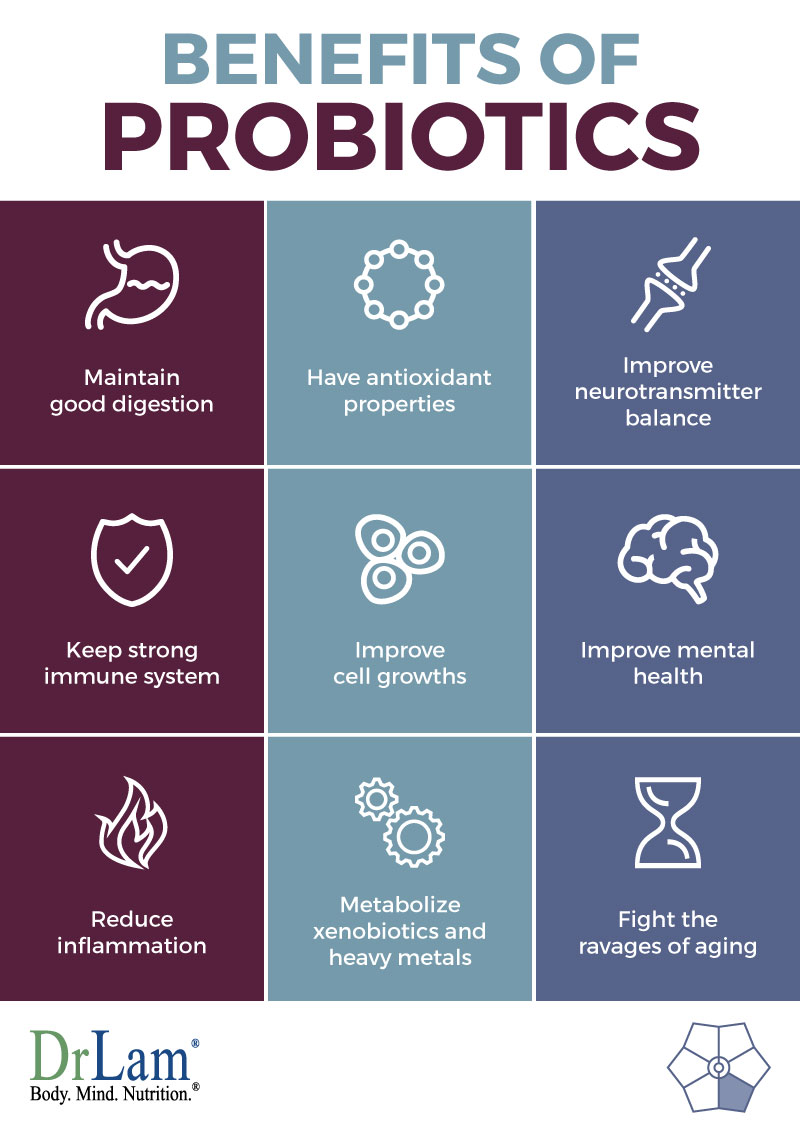The Benefits of Probiotics: Unlocking the Secrets to a Healthy Gut
Welcome to our comprehensive guide on the incredible benefits of probiotics. In this article, we will delve into the world of probiotics, exploring their impact on our overall health and well-being. Join us as we uncover the secrets to a healthy gut and discover how probiotics can transform your life.
Understanding Probiotics
Probiotics are live microorganisms that provide numerous health benefits when consumed in adequate amounts. These beneficial bacteria and yeasts work in harmony with our bodies to support a healthy gut microbiome, which plays a crucial role in our overall health.
The Role of Probiotics in Gut Health
Probiotics promote a healthy gut environment by balancing the microbial ecosystem in our digestive system. They help to maintain a diverse and thriving community of beneficial bacteria, which is essential for optimal digestion and nutrient absorption.
The Benefits of Probiotics
Improved Digestion: Probiotics aid in breaking down food, making it easier for our bodies to extract nutrients. They can alleviate common digestive issues such as bloating, gas, and constipation, ensuring a smoother digestive process.
Enhanced Immune System: The majority of our immune system resides in our gut. Probiotics strengthen the gut barrier, preventing harmful pathogens from entering our bloodstream. By bolstering our immune response, probiotics help defend against infections and reduce the risk of autoimmune diseases.
Mental Health Support: Emerging research suggests a strong connection between the gut and the brain. Probiotics may positively influence our mental well-being by modulating neurotransmitter production and reducing inflammation in the brain. They have shown potential in alleviating symptoms of anxiety and depression.
Weight Management: Probiotics may play a role in maintaining a healthy weight. Certain strains have been linked to a reduced risk of obesity and metabolic disorders. They can also regulate appetite and improve insulin sensitivity.
Skin Health: The gut-skin axis highlights the connection between our gut health and the appearance of our skin. Probiotics can improve conditions such as acne, eczema, and rosacea by reducing inflammation and promoting a balanced skin microbiome.
Choosing the Right Probiotic
When selecting a probiotic supplement, it’s important to consider the specific strains and their targeted benefits. Look for supplements that contain a variety of strains, including Lactobacillus and Bifidobacterium, as they are known to have a positive impact on gut health. It’s also crucial to check the potency and viability of the strains, ensuring they will survive the journey through the digestive system.

Probiotics offer a multitude of benefits for our overall health and well-being. By supporting a healthy gut microbiome, they enhance digestion, boost the immune system, promote mental health, aid in weight management, and improve skin health. Incorporating probiotic-rich foods and supplements into your daily routine can be a game-changer for your gut health. Unlock the secrets to a healthy gut and experience the transformative power of probiotics today!
Frequently Asked Questions about the Benefits of Probiotics
1. What are probiotics?
Probiotics are live microorganisms that provide health benefits when consumed in adequate amounts. They are often referred to as “good bacteria” and can be found in certain foods or taken as dietary supplements.
2. How do probiotics benefit our health?
Probiotics help maintain a healthy balance of bacteria in our gut, which is important for digestion, immune function, and overall well-being. They can also help prevent or alleviate certain digestive issues.
3. Can probiotics improve digestion?
Yes, probiotics can improve digestion by promoting the breakdown and absorption of nutrients, reducing bloating and gas, and alleviating symptoms of conditions like irritable bowel syndrome (IBS).
4. Are there any specific health conditions that can benefit from probiotics?
Probiotics have been found to be beneficial for conditions such as diarrhea, constipation, lactose intolerance, urinary tract infections, and certain types of allergies. However, it’s always best to consult with a healthcare professional for personalized advice.
5. Can probiotics boost the immune system?
Yes, probiotics can help boost the immune system by enhancing the production of immune cells and improving the gut barrier function, which prevents harmful bacteria from entering the bloodstream.
6. Are there any side effects of taking probiotics?
In general, probiotics are considered safe for most people. However, some individuals may experience mild side effects such as bloating, gas, or an upset stomach. These symptoms usually subside on their own.
7. How long does it take for probiotics to work?
The time it takes for probiotics to work can vary depending on the individual and the specific health condition being addressed. Some people may notice improvements within a few days, while others may require several weeks of consistent use.
8. Can probiotics be taken with antibiotics?
Yes, it is generally safe to take probiotics while on antibiotics. In fact, probiotics can help reduce the risk of antibiotic-associated diarrhea and restore the balance of beneficial bacteria in the gut that may be disrupted by antibiotics.
9. Are all probiotic supplements the same?
No, not all probiotic supplements are the same. They can contain different strains and concentrations of bacteria, so it’s important to choose a reputable brand and select a product that is appropriate for your specific needs.
10. Can probiotics be taken by children?
Yes, probiotics can be taken by children. However, it’s advisable to consult with a pediatrician to determine the appropriate dosage and strain of probiotics for your child’s age and specific health needs.




